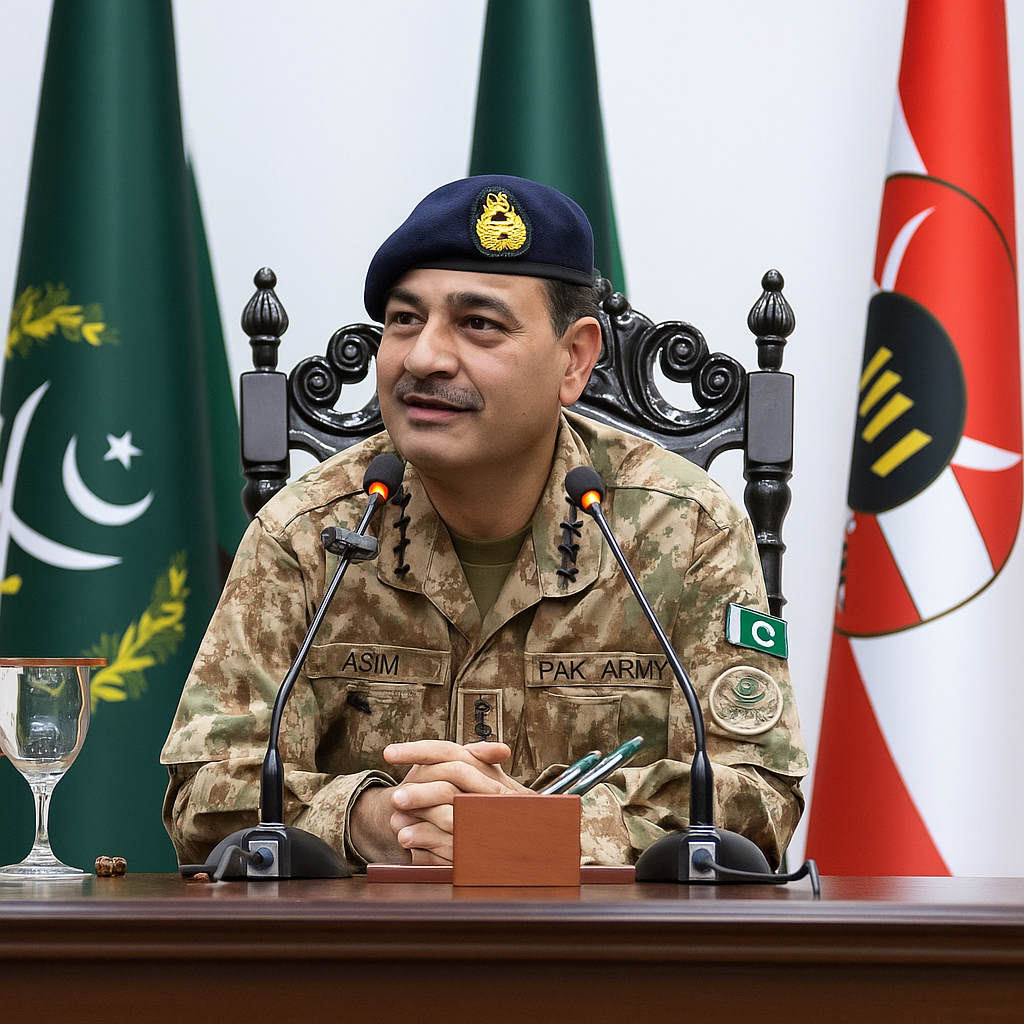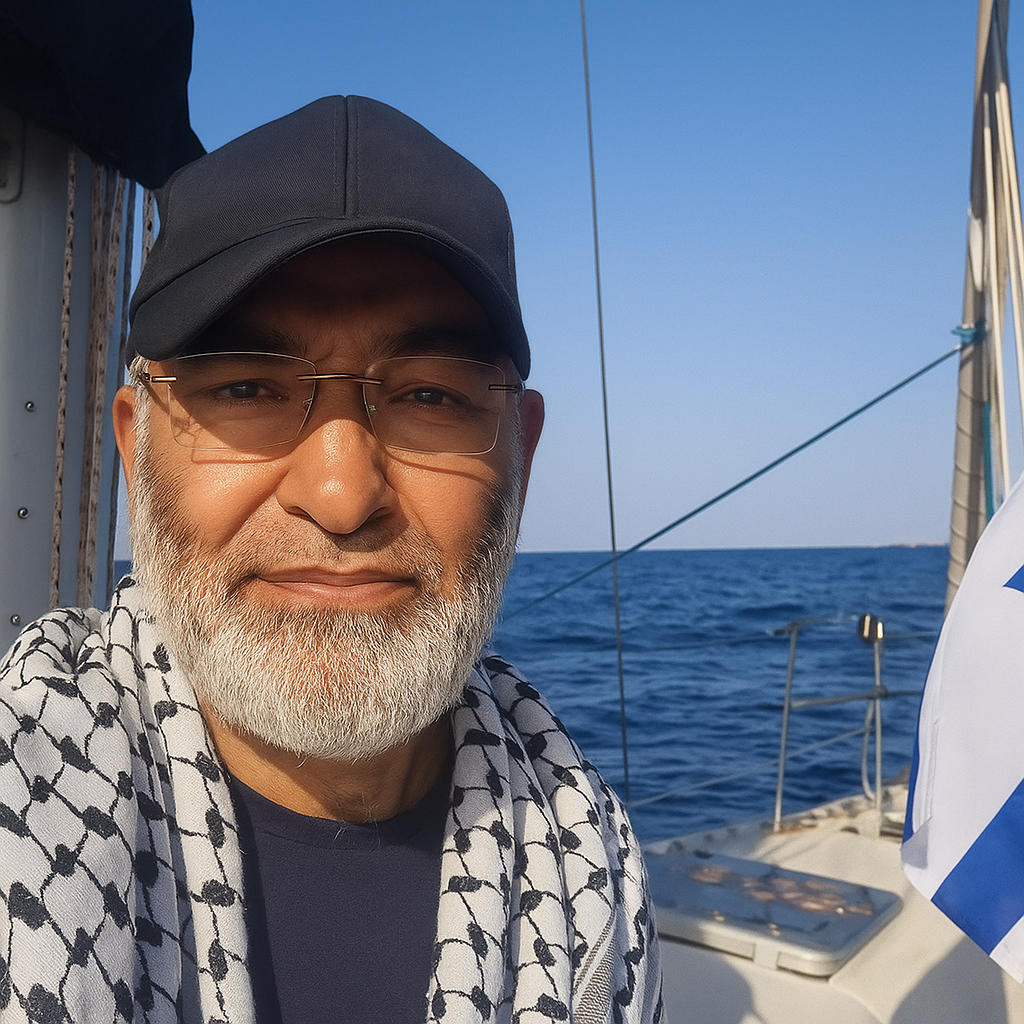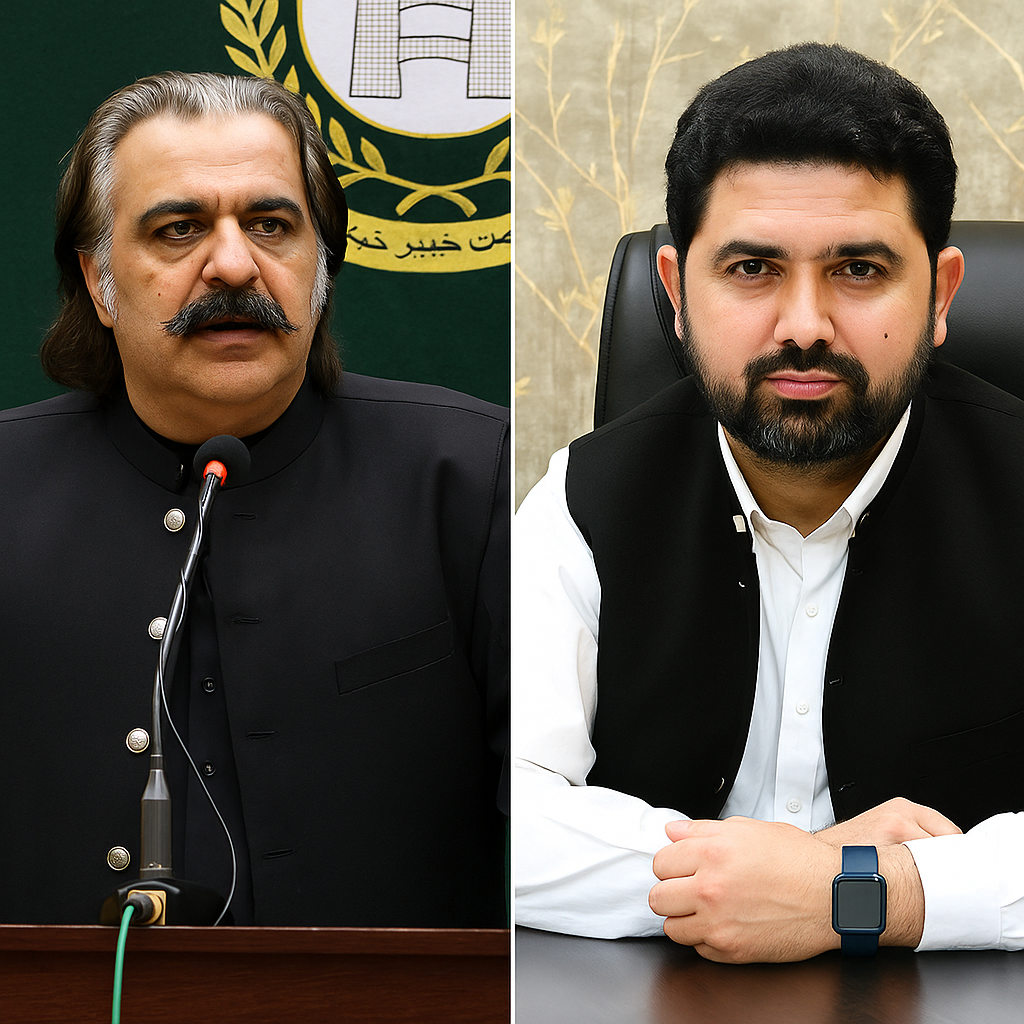Army Top Brass Vows to Dismantle Nexus of Terror, Crime & Political Patronage
Rawalpindi / Islamabad — Pakistan’s military leadership has made one of its strongest statements yet on internal security, pledging to break the nexus between terrorism, organized crime, and political patronage. The message came after the 272nd Corps Commanders’ Conference (CCC), chaired by Chief of Army Staff (COAS) Field Marshal Syed Asim Munir at the General Headquarters (GHQ), Rawalpindi.
The statement marked a shift in tone — from a purely security-oriented focus to one that now addresses the political and financial undercurrents enabling criminal and militant networks across Pakistan.
Army’s Message — No More Patronage Networks
The ISPR press release following the conference outlined a clear and uncompromising stance:
“The existing nexus between terror and crime with vested political patronage will not be allowed to continue anymore, come what may.”
According to the military, such networks are directly undermining national security, economic stability, and public trust. By placing political patronage in the same category as terrorism and crime, the statement signaled that future actions may not remain confined to militants alone — but could also target their facilitators and enablers in other sectors.
Key Highlights from the 272nd Corps Commanders’ Conference
- Targeting the Triad of Terror, Crime, and Corruption
The leadership reviewed the internal security situation and resolved to eliminate the interconnected systems of terrorism, organized crime, and political protection. The message was unmistakable — the military sees this as an existential internal threat. - Countering External Aggression
The conference also addressed rising tensions with India, warning that any aggression would be met with a “swift and decisive response.” The army chief cautioned that attempts to “establish an imaginary new normal” through coercion would not succeed, reaffirming that Pakistan’s sovereignty and defense lines remain “non-negotiable.” - Fighting Proxy Threats and Hybrid Warfare
The commanders reiterated that Pakistan would confront all forms of hybrid threats and proxy terrorism. References were made to groups and ideologies seen as “externally sponsored,” indicating that counterterrorism now includes tackling foreign influence operations alongside domestic extremism. - Regional Partnerships and Strategic Cooperation
The forum acknowledged Pakistan’s evolving defense cooperation with friendly nations, particularly the strengthening of ties through recent strategic agreements. The leadership described these partnerships as vital to enhancing defense capabilities and economic stability amid regional challenges. - Support for Kashmir and Palestine
In its concluding remarks, the military reaffirmed unwavering support for the people of Indian-occupied Jammu and Kashmir, endorsing their right to self-determination in accordance with UN resolutions. The army also reiterated support for a two-state solution for Palestine — based on pre-1967 borders with East Jerusalem (Al-Quds) as the capital — while urging an immediate ceasefire and humanitarian assistance for Gaza.
Deeper Analysis — What This Means for Pakistan
1. From Combat to Cleanup
This declaration suggests a broader shift from direct combat operations to dismantling the infrastructure of terrorism — funding, facilitation, and protection. By targeting financial and political enablers, the army is signaling a nationwide cleanup campaign that could involve investigations, asset seizures, and legal actions against those complicit in maintaining these networks.
2. Political Implications
The reference to “political patronage” has far-reaching consequences. It implies accountability may not stop at the militant level but could extend into corridors of power. While this could strengthen institutional credibility, it also risks political friction if certain actors perceive selective enforcement or political motivations behind upcoming actions.
3. Framing the Threat
By linking internal instability to external sponsorship, the army is reframing Pakistan’s internal security crisis as part of a broader regional struggle. The approach positions internal cleansing as essential to external defense — an integrated doctrine that treats terrorism, crime, and corruption as different faces of the same threat.
4. Rising Urgency
Pakistan’s recent uptick in militant violence and targeted attacks across Khyber Pakhtunkhwa, Balochistan, and urban centers has heightened public anxiety. The military’s message comes at a time when the public is demanding tangible results — not just operations, but lasting peace and stability.
What Comes Next — Possible Steps
The military’s statement hints at a coordinated national effort that may include:
- Joint Counterterrorism Drives — Greater synchronization between the armed forces, intelligence agencies, and civilian law enforcement to target militant hideouts and criminal cartels.
- Financial Crackdown — Tracing, freezing, and seizing assets tied to terror financing, smuggling, and money laundering.
- Legal Reforms and Accountability Measures — Expanding anti-terror and anti-corruption frameworks to dismantle patronage-based protection systems.
- Public Awareness and Information Campaigns — Exposing networks and facilitators through transparency and media engagement to build national consensus.
- International Collaboration — Strengthening intelligence-sharing and defense cooperation with partner nations to neutralize cross-border threats.
Challenges Ahead
- Ensuring Due Process: Balancing decisive action with legal transparency will be crucial to avoid perceptions of political bias.
- Managing Political Fallout: As investigations expand, pushback from implicated groups could test institutional unity.
- Regional Stability Risks: Aggressive rhetoric with India could escalate tensions, though the military’s tone suggests deterrence rather than provocation.
- Public Confidence: Sustained credibility will depend on visible, consistent results rather than announcements.
Historical Context — Why the Shift Now?
Pakistan’s security apparatus has waged a long war against militancy, but the persistence of extremist financing, criminal rackets, and political protection has hindered lasting peace. The new declaration seems aimed at addressing this unfinished business — not just defeating terrorists but removing the ecosystem that sustains them.
This holistic approach represents a renewed phase in Pakistan’s internal security doctrine — one that connects governance, economy, and defense into a unified stability agenda.
The Road Ahead
Field Marshal Asim Munir closed the conference by commending troops for their “unwavering professionalism and commitment,” urging all ranks to remain focused on operational readiness and discipline. The overall tone was one of zero tolerance — towards both external hostility and internal decay.
The coming months will reveal whether this bold statement translates into tangible actions. If implemented effectively, it could mark a turning point in Pakistan’s decades-long battle against militancy, corruption, and institutional decay. If not, it risks becoming another moment of strong rhetoric without structural change.



